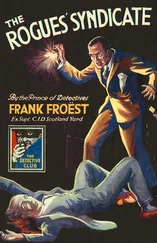The darkness is threatening.
Why should it be? It deprives us of the co-ordinates of visible existence, but is that so terrible? Nature exists independent of our eyes, and it's bursting with variety. It's only through the lens of prejudice that it appears impoverished – because we judge it in terms of what we find pleasing. We always see ourselves, even in the flickering of a screen. Do any of the pictures on our computers and televisions show the world as it is? Can our perceptions allow us to see variety, when we always need prototypes – 'the cat' or 'the colour yellow' – to grasp anything? Oh, it's amazing how the human brain wrests these norms from such infinite variety. It allows us to comprehend the incomprehensible through an ingenious trick, but it comes at a price. Life becomes abstract. The end result is an idealised world, in which ten supermodels provide the templates for millions of women, families produce 1.2 children, Chinese men are five foot seven and live until the age of sixty-three. We're so obsessed with norms that we forget that normality is horn of abnormality, of divergence. The history of statistics is a history of misunderstandings. They provide us with an overview, but they blot out variation. They've estranged us from the world.
Yet they bring us closer together.
Is that what you think?
Well, we tried to communicate with the yrr, didn't we? We even succeeded. We had mathematics as our common ground.
Hold on. That's different. There's no room for variation in Pythagoras' theorem. The speed of light is always the same. Within a defined environment, mathematical formulae are unerringly valid. Maths doesn't ascribe values. A mathematical formula can't live in a burrow or in a tree. It's not something that can be stroked or that bares its teeth when threatened. You can't have an average law of gravity: there's only one law that applies. Sure, maths allowed us to communicate with the yrr, but do we understand each other any better for it? Has maths ever brought humanity closer? The way we label the world is determined by the evolution of our cultures. Different cultural groups see the world differently. The Inuit have no word for snow, only hundreds of words for all of its different kinds. The Dani people of Papua New Guinea have none for different colours.
What can you see?
Weaver stares into the darkness. The submersible continues its silent descent, travelling at an angle of sixty degrees and a rate of twelve knots. She is 1500 metres from the surface already. The submersible moves noiselessly, without so much as a creak or a groan from the hull. Mick Rubin is lying in the neighbouring pod. She tries not to think about him. It's a funny feeling, flying through the night in the company of a corpse.
A dead messenger, the bearer of their hopes.
Lights flare.
Yrr?
No, she's flying through a shoal of cuttlefish. From one moment to the next she finds herself in an underwater Las Vegas. In the eternal night of the depths, neither garish clothes nor funky dancing will help attract a mate, so single males in search of a companion do all their showing off with lights. Their photophores, small transparent pouches, open and close to reveal luminescing bacteria, allowing the cuttlefish's organs to pulse with light in a ballet of winks, a noiseless deep-sea clamour. But they're not trying to court Weaver's boat: the flashes are designed to frighten it. Back off, they tell it. When that doesn't work, they throw open their photophores, surrounding the submersible and shimmering with light. Among them are smaller organisms, pale creatures with red and blue cores: jellyfish.
Weaver can't see it, but something has joined them; her sonar tells her so. A large dense mass. Weaver's initial thought is that it must be a collective, but yrr-collectives glow, and this thing is as dark as the water round it. Its form is elongated, bulky atone end, tapering off at the other. Weaver's flight path takes her straight towards it. Adjusting the angle, she soars through the water above it. As she passes overhead, it dawns on her what it might be.
Whales have to drink water to survive. It seems incredible, given their habitat, but a whale runs the same risk of dehydration as a human abandoned on a raft. Jellyfish are made of almost nothing but water – fresh water. Cuttlefish are another source of life-sustaining fluid, so the quest for drinking water draws sperm whales to the depths. Plunging vertically they descend a thousand, two thousand, sometimes even three thousand metres below the surface, linger for more than an hour, then come up to breathe for ten minutes, and dive again.
Weaver has encountered a sperm whale. A motionless predator, equipped with good eyes. In the realm of darkness, the creatures have good eyes. At this depth, they all have good vision.
WHAT CAN YOU SEE? What can't you?
You're walking along the street. Some distance ahead, a man is coming towards you. A few steps in front of him is a woman with a dog. Click, you take a picture. How many living organisms are there in the street? How far away is each creature from the other?
There are four.
No, wait. . . There are three birds in the trees, so that makes seven. The man is eighteen metres away. There are fifteen metres from me to the woman. Her dog is only thirteen metres away – it's scampering in front of her, straining at the leash. The birds are ten metres above the ground, each sitting fifty centimetres from the next. Wrong! What you don't see is that billions of organisms are swarming all over the street. Only three are human. One is a dog. In addition to the three birds you counted, there are fifty-seven that you haven't seen. The trees are living organisms, and in their bark and foliage live hordes of tiny insects. Mites infest the birds' plumage and the pores of your skin. Fifty or so fleas, fourteen ticks and two flies are buried in the dog's coat, while thousands of tiny worms inhabit its stomach. Its saliva is full of bacteria. The three human bodies are covered with microbes, and the distance between all these organisms is practically nil. Floating above the street are spores, bacteria and viruses that form chains of organic matter – chains of which humans are a part – knitting us together in one super-organism. In the sea it's no different.
What are you, Karen Weaver?
I'm the only human life-form for miles around – unless you count Rubin, who's not a life-form any more.
YOU'RE A PARTICLE.
One among countless different particles. In the same way as no cell is identical to another, no other human is identical to you. There is always a difference somewhere. That's how you should see the world. As a spectrum of diverging similarities. It's comforting to see yourself as a particle, isn't it, once you know you're unique?
A particle moving in space and time.
THE DEPTH GAUGE FLASHES.
2000 metres.
I've been diving for seventeen minutes.
Is that what your display is telling you?
Yes.
To understand the world, you need to find a different way of seeing time. You need to be able to remember – but you can't. Mankind has been short-sighted for two million years now. Most of Homo sapiens evolution has been spent hunting and gathering, and that's what shaped our brains. For our forefathers the future was never more than the next moment in time. Anything beyond that seemed as vague and hazy as the distant past. We used to live for the moment, driven by an urge to reproduce. Disasters were forgotten or laid down in myth. Forgetting was once a gift of evolution, but now it's a curse. Our minds are still bounded by a temporal horizon that prevents us seeing any further than a few years in either direction. Generations pass, and we forget, repress and ignore. Unable to remember and learn from the past, we're incapable of considering the future. Humans aren't designed to see the whole and the role they play within it. We don't share the world's memory.
Читать дальше












